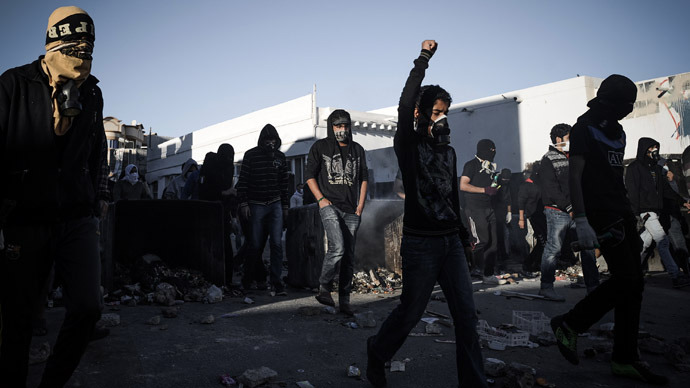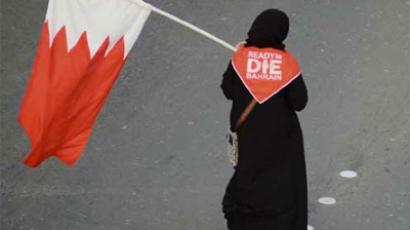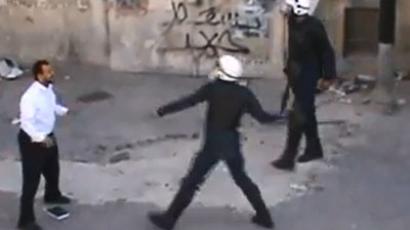5 officers acquitted in Bahrain torture death case, 2 found guilty in separate murder

Two Bahraini police officers were sentenced to 10 years in prison after being convicted of torturing a Shiite protester to death. Despite the conviction, the officers and three of their colleagues were cleared in the death of another detainee.
The two policemen were convicted of "torturing to death Ali
al-Saqr,” who was arrested during the February 2011 uprising, a
judicial source told AFP.
Saqr died on April 9, 2011, from “hypovolemic shock resulting
from several traumas,” according to a report by the Bahrain
Independent Commission of Investigation (BICI), an international
panel that investigated the events that unfolded during March and
April of that year.
All five officers were found not guilty for the murder of another
protester, Zakeriya Asheeri, who also died in 2011 while in
detention. The three officers cleared in the death of Asheeri were
also were also acquitted for “failing to report the crime”
of Saqr’s murder.
“For the 4th time in 3 months a police officer [is] acquitted
for killing a civilian. #bahrain culture of impunity," Said
Yousif Almuhafda, the head of the monitoring section at the Bahrain
Center for Human Rights, wrote on Twitter on Tuesday.
In January 2012, the Bahrain Center for Human Rights characterized
the proceedings as a show trial, saying that torture was
systematically used in detention centers prior to the February 2011
uprising.
“The Bahraini government, however, continues to ignore calls from
local and international organizations to hold any of the high rank
officers accountable for the deaths of AlAshiri, Saqer and the
other three men who have died under torture in custody. Instead it
has resorted to bring cases of torture against low rank policemen
who because of the systematic nature of torture in these
institutions, if proven guilty, were following policy and not
acting on their own account,” the group said.
Several other officers are currently being investigated or standing
trial on allegations of torture after hundreds of demonstrators
were detained following a crackdown on the protest movement in
mid-March 2011.
In late January, a court sentenced a police officer to seven years
in prison for torturing a protester to death.
Complicity in torture expands beyond rank-and-file police officers,
as Bahraini Princess Nora Bint Ebrahim Khalifa also appeared in
court over torture allegations in January. Princess Nora, who
serves in Bahrain’s Drugs Control Unit, allegedly collaborated with
another officer in the torture of three activists who had been
taken into custody.
Two of the Bahraini King’s sons – Nasser Bin Hammad Khalifa and
Khalid Bin Hammad Khalifa – as well as one other member of the
royal family, Khalifa Bin Ahmed Khalifa, were also accused of
directly taking part in torturing activists in the country, a
55-page report titled ‘Citizens in the Grip of Torture’
charged.
Authorities in the kingdom have said they are implementing the
recommendations of an independent commission of inquiry appointed
by the king, which confirmed the use of excessive force by security
forces during the uprising.
Bahrain – home to the US Navy’s Fifth Fleet – is ruled by a Sunni
monarchy, while over 75 percent of the population is Shia.
On February 14, 2011, thousands of protesters took to the streets
of the capital Manama, demanding democratic reforms and the
resignation of Prime Minister Khalifa bin Salman Khalifa, the
longest-serving prime minister in the world.
Since the start of the uprising, opposition activists say at least
88 protesters have been killed, including nine children.














